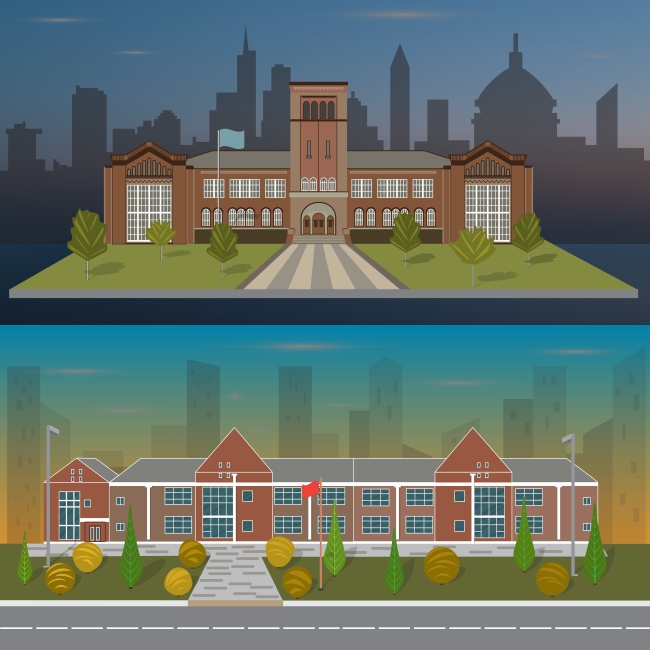You have /5 articles left.
Sign up for a free account or log in.

istock
In the welter of conflicting diagnoses and prescriptions for higher education, the need to reform doctoral programs is one thing that almost everybody seems to agree upon. The complaints have become familiar: candidates spend far too long earning the degree. Even wonderfully talented Ph.D.s languish outside the gates of the tenure-track promised land. Those who do manage to slip through the gates often must scramble to develop the undergraduate teaching chops that most doctoral programs don’t provide yet most employers are banking on for student retention.
The basic options for reform have become fairly familiar as well: cut down the number of doctoral programs or the time to degree while increasing the commitment to teach pedagogy. Of course, finding the collective will to enact such changes is another matter. One can hope that “A discursive threshold has been reached,” as Sidonie Smith told Inside Higher Ed, and that doctoral programs will finally be “swept up in the tide of transformation” that has lifted Smith’s spirits.
In the meantime, however, I would suggest a less sexy reform than the heralded slate of high-tech dissertation alternatives and postdisciplinary interfaces. Every doctoral student who plans to work in the academy should be required to take a course in higher education.
The benefits of such a course would be manifold and far-reaching, an investment that makes sense even in the context of streamlining programs as a whole. For starters, there may be no healthier antidote to the negative effects of a crisis mentality than an informed sense of historical perspective and a reasonably solid grasp on trends and debates in contemporary higher education. “With knowledge comes sorrow,” one might object, but ignorance has always been the greatest ally of fear and, more crucially, the enemy of intelligent adaptation. Armed with a knowledge of the higher education landscape and a brass-tacks understanding of how of colleges and universities operate, those who don’t land a tenure-track job will have a leg up in the growth industry of higher education administration while those who do land a tenure-track position will be equipped to help their institutions navigate reform.
Sure, it would be naïve to suggest that a single graduate-school course will enable the next generation of junior faculty to ride into faculty meetings like so many knights in shining armor. The very idea must sound obnoxious to those who have been through the wars decade after decade, dean after dean, and have the institutional wisdom to show for it.
Yet we already work each day in the faith that a good introductory course can give our students the foundation for a lifetime of more informed interest in anything from American government to chemistry. Such courses are a central part of our mission, and those of us in the liberal arts tend to be especially adamant on the subject. We prefer to say they are part of the core curriculum rather than gen ed, because the former term better expresses the strength of our conviction that all students should develop at least a basic working knowledge of all the major contexts in which they will live their lives. College is not about creating blinkered specialists, we tell anybody who will listen. It’s about fostering the broad knowledge and wide-ranging intellectual curiosity that are required for responsible citizenship in a democracy.
Yes, we insist that the integrity of our democratic ideals depends upon the integrity of our commitment to producing well-informed citizens, citizens willing and able to lead in a rapidly changing world. And yet, if we’re honest with ourselves, we have to admit that most faculty conceive of their own academic citizenship in terms of committee work supplemented by whichever higher education articles are circulated among their Facebook friends.
One might argue that any appeal to our sense of integrity as citizens of the academy must recognize the division of labor between faculty members, administrators and trustees, and that this division of labor limits the range of knowledge required in a competent faculty citizen. Plus, somebody’s bound to point out that a college or university is not a democracy. But the principle of shared governance is still extremely important to faculty members, and the integrity of shared governance is undermined by counterproductive mind-sets that a broader knowledge of higher education is bound to ameliorate. Chief among these are exceptionalism, defensiveness, recalcitrance, misplaced suspicion and fatalism -- all of which are aggravated if not instigated by the sound of alarm bells that dominates what we hear about our profession these days.
Sound harsh? Ask a few administrators if faculty members know enough to contribute substantively to debates about the direction of their institutions. After a qualified yes or a flat no, most conscientious administrators will tell you that part of their own job is to obviate the need for faculty members to know about such things so that we can focus on our roles as teachers, mentors and researchers in an academic field. Nonetheless, the faculty voice is much easier to dismiss in boardroom deliberations if it plays into the stereotype that we are the kind of bees who only come out of our hive when it is whacked. Or, to take a more common metaphor, that we demand a place at the table but don’t really advance the conversation much -- in fact, we often do the opposite.
Then, when we don’t see enough evidence of our input in the direction of our institutions, the suspicion that we have been dupes of false inclusion is apt to loom larger in our minds than the possibility that, despite the strength of our convictions, our input wasn’t strong enough in content. It’s easy to say that there is a fine line between paranoia and vigilance when one forgets that the distance between these two conditions is information, and we cannot realistically expect our administrative leaders to provide all the information necessary for optimally competent faculty feedback any more than we can expect the U.S. government to supply all the information necessary to our ideal of American citizenship.
For one thing, our administrative leaders don’t necessarily have all the information themselves, much less the insight that a more fully, more independently informed faculty can bring to bear on the challenges and opportunities facing our institutions. Along with the new-facilities arms race that helped inflate the national tuition bubble, the strikingly interchangeable nature of most strategic plans underscores this fact, suggesting sameness of administrative visions more than soundness.
Even Derek Bok, the former president of Harvard University who literally wrote the book on Higher Education in America, admits, “Like so many others who have ventured down this path [of administration], I had no opportunity to study higher education in detail before finding myself consumed by its demands. Only after my active service ended did I find the time to read deeply about the subject that had already filled my life for a quarter of a century. Having done so, I often look back with chagrin, realizing how differently I might have acted had I understood then what I only came to appreciate much later.”
Two other former university presidents have recently used their relatively superior knowledge of higher education history to more disturbing effect, pointing out that changing circumstances have both diminished faculty bargaining power and rendered faculty members largely incompetent to be decision makers in our rapidly changing, increasingly digital environment. Bowen and Tobin’s Locus of Authority has not been universally embraced by presidents and trustees, but it certainly qualifies as an influential book, and faculty members ought to be unsettled by the way in which it highlights “transcendent challenges” that call for “real leadership” and “strong leadership,” i.e., the bald assertion of presidential authority. For Bowen and Tobin, those challenges offer opportunity for “real” presidents to take a firmer grip on the reins, but faculty can take it as a reminder that time-honored rights of citizenship rarely fare well once a state of emergency is declared.
This imbalance of power is probably growing, but perhaps the contingent faculty slave revolt in our academic Athens has stirred the tenured into a deeper recognition of their powers and responsibilities as its free citizens. Frankly, the investment we make in becoming more informed academic citizens is more likely to have a positive impact on the current direction of higher education than the rhetoric of citizenship that we have traditionally applied to undergraduates as a justification for general and liberal arts education. Again and again, experts have stressed that American colleges and universities must do a better job of “telling their story” to increasingly skeptical legislators and consumers. If faculty members can develop a broader and deeper understanding of this story in which we play such a central role, we will be in a better position to tell that story in more fresh and compelling ways -- and to face the many problems that will continue to affect us, whether we understand them or not.
Where can current faculty members, already burdened by ever-increasing demands, find the time to undertake such research? It would be wonderful if our institutions encouraged this kind of continuing education by funding greater faculty participation in conferences such as the American Association of Colleges and Universities, and if modest release time or even academic citizenship sabbaticals were available. Surely the benefits to the granting institution would arguably be greater than traditional research sabbaticals often yield. Or perhaps the junior faculty orientation seminar that many institutions offer could incorporate an element of higher education studies.
Still, it is probably more realistic to suggest that we catch our future colleagues before they are subject to the existing demands of the tenure track, when they are already taking graduate courses that will shape their interests as professionals. Think of the final exam as a citizenship test for our troubled but noble republic of ideas. New Ph.D.s will be better equipped to face the future and to help the rest of us face it, as well. And those of us who have inspired students to pursue a career in the academy will be better equipped to face ourselves.








